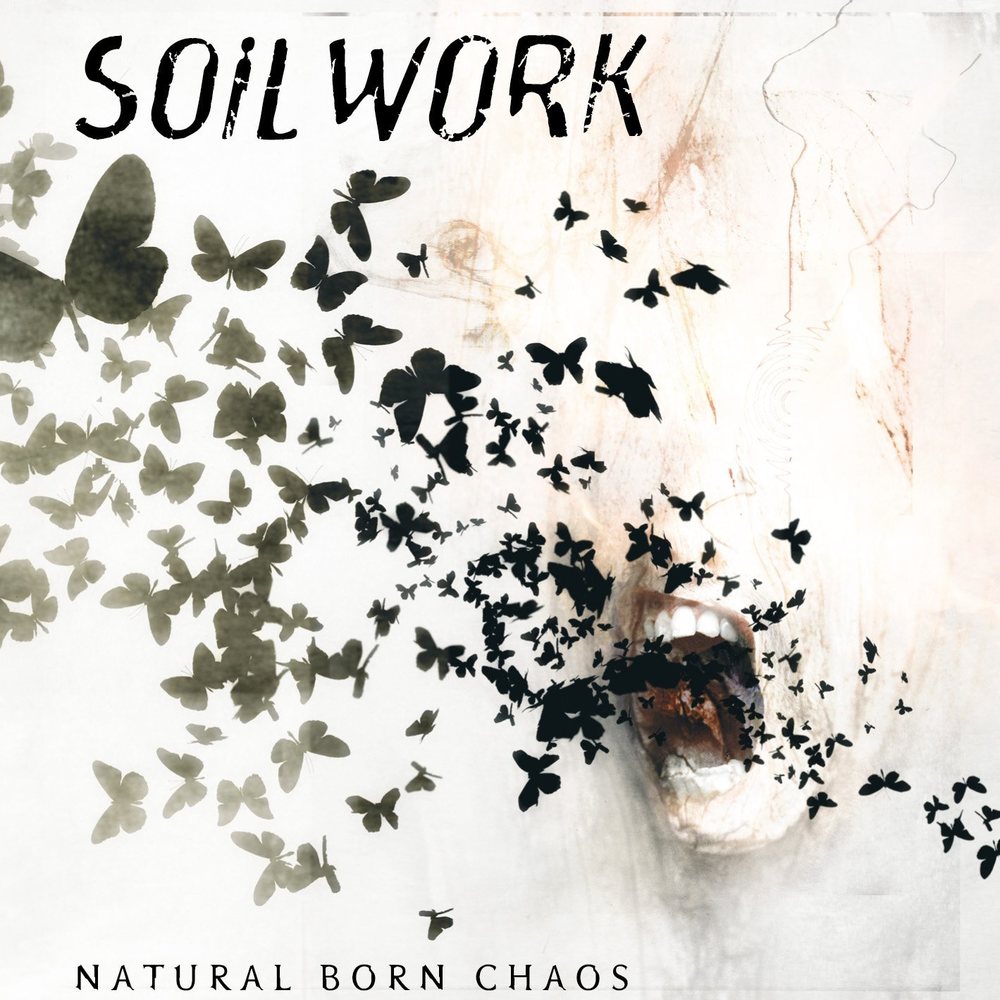I don’t recall exactly how I discovered long-defunct melodic death metal quintet Julie Laughs Nomore; it could have been while traveling down a Metal Archives rabbit hole, or perhaps perusing a random list of melodic death metal albums on Rate Your Music. Struck by their weird-ass band name (I’m not a big Candlemass fan so I had no idea that’s where they got it from), I went to check them out on YouTube and was blown away by what I heard. After much digging, I found a CD copy of their second album From the Mist of the Ruins for a ridiculously reasonable price and it has been one of my favorite melodic death metal albums ever since.
If you’ve never heard From the Mist of the Ruins, I’ll start by saying that Julie Laughs Nomore possess a sound that should have made them huge. Combing sweeping, epic guitar melodies and devastating straight-up death metal passages with a light yet zesty sprinkle of heavy/power metal influence and just a dash of black metal, the band did much to separate themselves from the hordes of melodeath bands that flooded the market from the mid-nineties to the mid two-thousands. I can only assume that the misfortune of being signed to a series of fly-by-night micro labels hampered their ability to get the attention they deserved; I’m sure the oddball band name and rather hideous album art probably didn’t help matters.
Whatever the case, the album is one of the true hidden gems of early 2000s extreme metal thanks not only to Julie Laughs Nomore’s unique approach to melodeath, but also due their expert craftsmanship. These guys were excellent songwriters and musicians, which makes it absolutely criminal that songs such as “Children of the Empty Cross” “Bringer of Misery” and “From the Mist of the Ruins” have still yet to be heard and embraced by a larger audience. From the exquisite riffage to the highly varied vocal approach that features everything from higher-pitched rasps, to low growls, to rough-around-the-edges cleans that somewhat recall Emperor-era Ihsahn, every element of From the Mist of the Ruins is meticulously placed and perfectly executed.
While the band’s musical chops and knack for great melodies are certainly key to the album’s success, one the greatest aspects of From the Mist of the Ruins is the fact that Julie Laughs Nomore aren’t afraid to put the death in melodic death metal. Whereas many bands of the era were far more concerned with the melodic side of things, Julie Laughs Nomore were more than capable of bringing the brutality, as on the aforementioned “Children of the Empty Cross;” the ultra-heavy passage that kicks off at the 01:53 mark accompanied by dueling death growls is enough to cave in the skulls of most mortals. On the back half of the album “Lords of Pleasure” begins with hefty chromatic chugging before morphing into speedy tremolo riffs, with some of the album’s most wicked vocals tying it all together. These are just a few examples of Julie Laughs Nomore at their heaviest; rest assured that similar moments are found throughout From the Mist of the Ruins, making for an album that’s both catchy and crushing.
Produced and engineered by Jonas Kjellgren (Scar Symmetry, The Absence, Centinex), From the Mist of the Ruins sounds great; guitars and vocals dominate the mix with the drums and bass playing a supporting role, which makes perfect sense for a band who’s two greatest strengths are stellar guitar-work and a multi-pronged vocal attack. If there is one gripe to be had, it’s that the bass drum could use a little more oomph, but aside from that, Kjellgren’s production work here is as masterful as the band’s writing and playing, emphasizing everything that makes From the Mist of the Ruins such a stellar slab of melodic death metal.
Sadly, Julie Laughs Nomore never got their due while they were an active band and it doesn’t seem as if they’re going to get the reappraisal they so desperately deserve anytime soon. It’s a damn shame too, because From the Mist of the Ruins is far more deserving of a deluxe reissue than roughly 99.9% of the crummy third and fourth tier OSDM albums that get such extravagant treatment. I guess it’s a case of those who know, know for the time being, but at least maybe the five people who read this review will become new fans of one of the most underrated melodic death metal albums in the multiverse.


